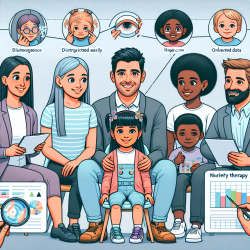Introduction
The field of speech language pathology (SLP) is continually evolving, with new research and methodologies emerging to enhance therapeutic outcomes. One such innovative approach is the integration of solidarity economy (SE) principles, as explored in the research article "Fight and Build: Solidarity Economy as Ontological Politics" by Loh and Shear. This article offers a unique perspective on how SE can be applied beyond its traditional economic context, providing valuable insights for SLP practitioners focused on creating transformative outcomes for children.
Understanding Solidarity Economy and Ontological Politics
The concept of a solidarity economy involves ethical and cooperative economic practices that prioritize community well-being over profit. It challenges the dominant capitalist model by fostering interdependence, cooperation, and sustainability. Ontological politics, as discussed in the research, is about creating and sustaining diverse realities that acknowledge and embrace these principles.
Applying SE Principles in SLP Practice
SLP practitioners can draw from SE principles to enhance their therapeutic approaches in several ways:
- Community Engagement: Collaborate with families, educators, and community organizations to create a supportive network that extends beyond the therapy room. This aligns with SE's focus on community involvement and shared responsibility.
- Interdisciplinary Collaboration: Work closely with other professionals, such as occupational therapists and educators, to provide holistic care. This reflects the SE principle of interdependence and collective action.
- Empowerment and Autonomy: Encourage children to take an active role in their therapy, fostering a sense of agency and self-determination. This approach mirrors SE's emphasis on autonomy and self-governance.
Encouraging Further Research
The integration of SE principles into SLP practice is a promising area for further research. Practitioners are encouraged to explore how these concepts can be tailored to meet the unique needs of their clients and communities. By doing so, they can contribute to a growing body of evidence that supports innovative, community-centered approaches to therapy.
Conclusion
Incorporating solidarity economy principles into speech language pathology practice offers a pathway to more inclusive and effective therapeutic outcomes. By embracing community engagement, interdisciplinary collaboration, and empowerment, practitioners can create environments that support the holistic development of children. For those interested in delving deeper into the research behind these concepts, I highly recommend reading the original research paper, Fight and build: solidarity economy as ontological politics.










